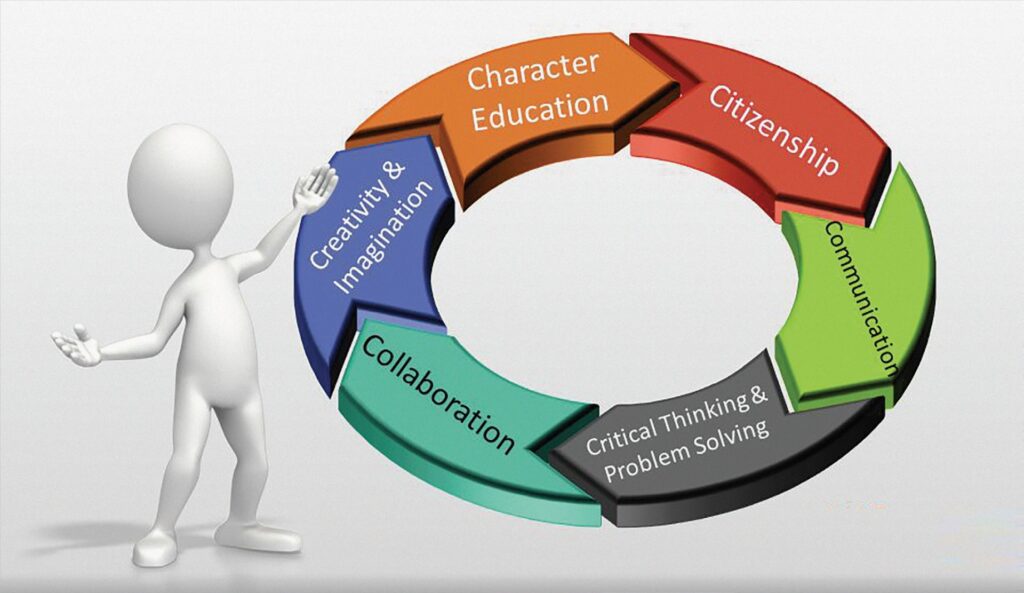 Dr. Sujaya Banerjee
Dr. Sujaya Banerjee
The future of work trends was already visible even before the pandemic. The global emergency has pushed us to use technology to work-from-home, which ended up becoming the largest global transition, and opt for e-commerce to purchase goods online which accelerated multi-fold during the pandemic. How we make payments for purchases made online became possible through innovations in fintech. Additionally, buying online food and groceries, online education, and schooling have also revolutionized our lives. Naturally, there are new skillsets in demand as the result of these changes and new ways of working that organizations have had to adapt, to continue remaining relevant and survive in a world of upheavals. Technology literacy, mindsets and cultures for innovation are no more ‘nice to have’ capabilities but have become basic requirements for the survival and flourishing of business. So, the future of work is already here and is fast accelerating across organizations.
Recent years have seen an exceptional awareness and prioritization of workplace culture by both employers and employees. At the same time, workplace culture is being influenced by several disparate factors in many significant ways. Demographic shifts, diversity and inclusion initiatives, talent shortages, automation, evolving technology, and an onslaught of data are converging to create both immediate and long-term changes.
What we do know is that the workplace, the workforce, and the way we work have significantly and permanently changed. Lockdowns and travel bans have impacted what we thought about the nature of work altogether. Businesses now understand that employees don’t necessarily need to be in the office to get their jobs done. Remote working has become the new norm. Business travel has been superseded by Zoom meetings. So, as we adjust to these new working ways, leaders must consider the effects this is now having on company culture.
Company culture is a critical mission as it guides and influences the behavior of people. It tells employees how to respond, what choices to make and how to handle unprecedented situations and issues. Company culture is the unseen force that drives employee decision-making every day. Culture tells employees what to do when their leader is out of sight.
Basically, the future of work cultures is an amalgamation of three key things: Technology, Environment, and Behaviour. These areas are inextricably linked, and the building blocks of organizational culture across Organizations- across industries and geographies.
Has Covid-19 has affected culture?
Work-from-home has been a window into people’s lives that wasn’t available before. Connections have become more genuine in some cases and in others, this has also lead to working round the clock with poor work planning and micromanagement.
Interestingly in many cases, it has also caused better collaboration, and a willingness to jump in and help colleagues has also developed. This is perhaps due to the “we’re all in this together” attitude that’s permeating within companies.
The shared struggle has also seen an increase in empathy and understanding between colleagues, employees, and employers. Before the pandemic, problems were usually individual and left at home. Now the home has interestingly become a genuine part of the workplace.
Also, the pandemic-induced isolation and job insecurity have unsurprisingly hurt the employee well-being as many are struggling to switch off and set boundaries between work and home life.
Physical distancing, the rise in remote working and working in shifts also means less incidental, serendipitous meetings. The ‘water cooler’ chats and coffee meetings that have often been the catalyst for innovation, fresh ideas, and collaboration, can now be accessed with people returning back to the office although many still continue with remote working.
Here are the trends on how the future of work cultures is already unfolding. Identifying and tracking trends that matter most for your organization to remain high performing, will help integrate these trends to create human-centric differentiated cultures that become your competitive advantage-
- The command & control leadership styles will need to give way to allow for more empowerment and distributed leadership. The unfolding of the knowledge era- which makes it important to include diverse views, ideas and opinions, and employee voices to solve wicked problems in a disruptive environment.
- Building diverse and inclusive cultures will be a MUST with culture triumphing compliance. Leaders will need to show their vulnerability and growth mindsets to learn and reflect with the teams, own their biases, and role model what it means to be equal opportunities employers by accelerating cultures of inclusion. Building human-centric meritocracies will lead to attracting big and retaining good talent.
- Building trust and transparency will be key to ensure the organization is using the upheavals in the environment to experiment with new behaviors, demonstrate compassion, have the courage to be transparent, and step up with communication.
Over-communication in these times will be key to ensure the teams understand and remain engaged and contributing through constant Change. - As technology automates tasks, this changes the jobs to be done by humans and also creates much anxiety on keeping up and job security. Employees and employers will need to partner in meaningful ways to create Life-long learning pathways to keep pace with technology and other best practices.
- Organizations will need to simplify internal work processes, make companies easier places to work in by reducing bureaucracy, reduce hierarchies to create nimble organizations that truly value agility of decision making and impact. Collaboration, customer centricity, leadership at all levels will need to be built to spearhead the culture change.
The future of work cultures enables the building of contemporary organizations that are a talent magnet, those that have the combination of challenges, contributions, entrepreneurship and accomplishment, meritocracy, and rewards that help create cultures of contribution. These cultures are unique, differentiated to the working rhythm of each organization, that can continue to be a competitive advantage in an ever-changing world…
Dr. Banerjee is the Founder CEO of Capstone People Consulting, India. She is also the Founder of the Lnod Roundtable and the Women Leadership Forum of Asia.



